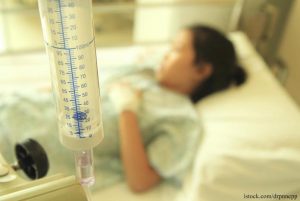Today is World Kidney Day and the National Institutes of Health (NIH) is raising awareness of kidney health with new research that shows survivors of acute kidney injury are at increased risk of developing permanent kidney damage which can result in decreased kidney function.
 “We now know acute kidney injury is not the isolated or temporary condition we once believed it to be. However, in many cases, it is preventable and treatable,” said Griffin P. Rodgers, M.D., director of NIH’s National Institute of Diabetes and Digestive and Kidney Diseases. “We must continue to support research to help us better understand the connection between acute kidney injury and chronic kidney disease, to prevent acute kidney injury in those at risk, and to identify and treat the condition when it does occur.”
“We now know acute kidney injury is not the isolated or temporary condition we once believed it to be. However, in many cases, it is preventable and treatable,” said Griffin P. Rodgers, M.D., director of NIH’s National Institute of Diabetes and Digestive and Kidney Diseases. “We must continue to support research to help us better understand the connection between acute kidney injury and chronic kidney disease, to prevent acute kidney injury in those at risk, and to identify and treat the condition when it does occur.”
Food poisoning can cause kidney damage. Hemoyltic uremic syndrome (HUS) is a serious, sometimes life-threatening condition that develops after some E.coli infections. HUS causes premature destruction of red blood cells. The dead cells accumulate and clog the kidney’s filtering system which can lead to kidney failure.
Roughly 90 percent of all HUS cases stem for E.coli 0157:H7 infections. Young children are most at risk. About 15 percent of children with E.coli infections will develop HUS. Treatment options include fluid replacement, blood transfusion, plasma exchange and kidney dialysis.
A study published last year in Clinical Infectious Diseases found that 30 percent of children who developed HUS had high blood pressure impaired renal function, or neurologic symptoms at their 5-year follow-up examinations.





washing hand before meal is effective way to prevent food poisoning